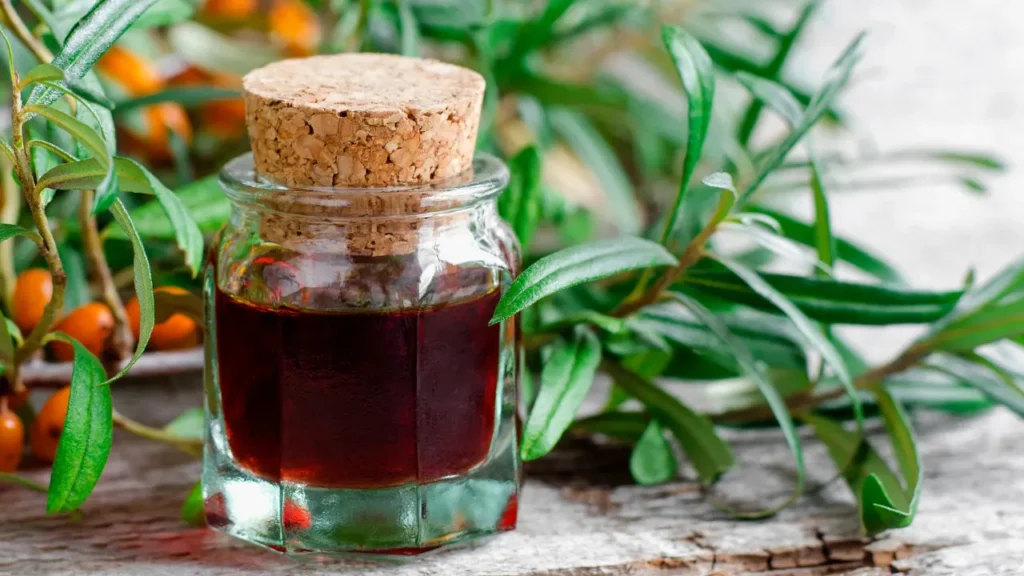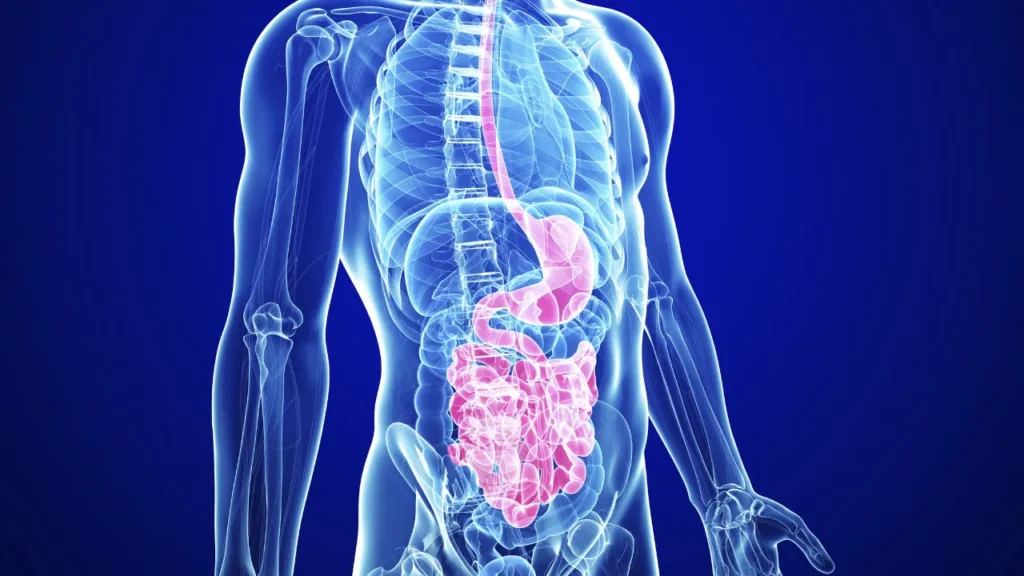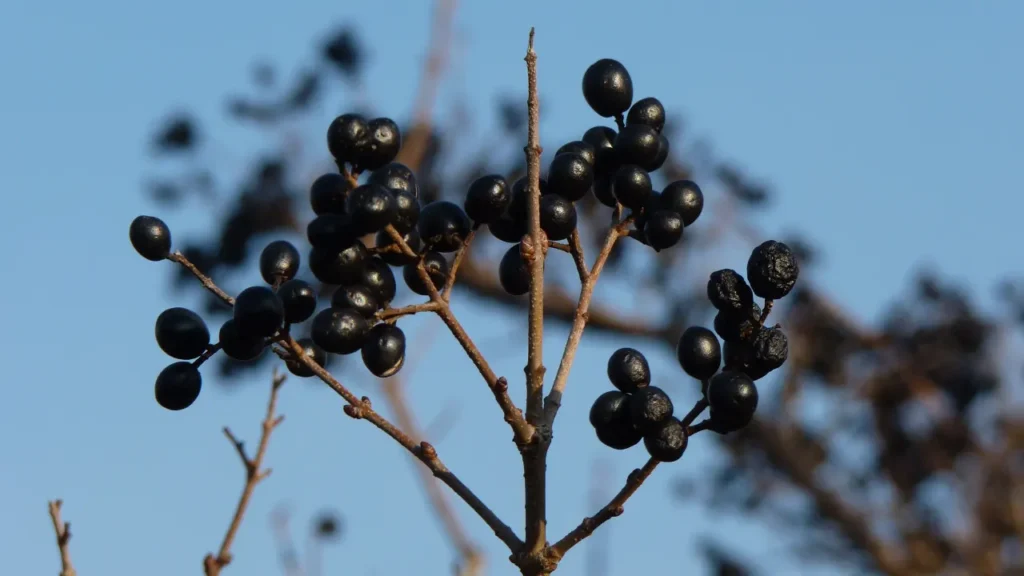Glossy buckthorn, sometimes known as alder buckthorn (Frangula alnus), is a deciduous shrub indigenous to Europe, western Asia, and northern Africa. It is a member of the Rhamnaceae family and has long been used in traditional medicine, especially as a laxative. Due to its numerous health advantages, alder buckthorn is increasingly used as a nutritional supplement. With an emphasis on the underlying chemical composition and physiological mechanisms of action, this page seeks to give an in-depth examination of the nature, health benefits, ideal dosage, side effects, potential substance interactions, and responsible usage of alder buckthorn.
You May Also Like:
Dr Emil Nutrition Lion’s Mane Reviewed: A Leading Nootropic Mushroom Product
Alder Buckthorn: Benefits, Dosage, Side Effects, Drug Interactions, And Other Important Information is an original (NootropicsPlanet) article.
Nature of Alder Buckthorn
Alder buckthorn is a deciduous shrub with distinctive characteristics, including alternating, straightforward leaves, dark brown bark, and glossy, black fruits. The plant is typically found in riparian areas, marshes, and moist woodlands. It grows best in wet, acidic soils. Traditional herbal medicine has used the bark and fruits of alder buckthorn, with the bark being the primary source of the plant’s medicinal qualities.
Health Benefits of Alder Buckthorn
- Laxative effect: Due to anthraquinone glycosides, alder buckthorn has historically been used to alleviate constipation. In the large intestine, these substances are hydrolyzed, generating aglycones that trigger peristaltic contractions and ease bowel motions. Additionally, anthraquinones boost the colon’s production of chloride ions, which causes an influx of water and electrolytes to soften stools and promote evacuation.
- Antioxidant qualities: Alder buckthorn contains flavonoids and phenolic acids with potent antioxidant activity. These substances have the ability to scavenge free radicals and reactive oxygen species, reducing oxidative stress, a risk factor for a number of chronic diseases, including cancer, cardiovascular disease, and neurological disorders.
- Anti-inflammatory properties: Studies have shown that alder buckthorn extracts can reduce the levels of pro-inflammatory cytokines such as tumor necrosis factor-alpha (TNF-alpha) and interleukin-6 (IL-6). The plant’s anti-inflammatory properties may help treat inflammatory diseases such as inflammatory bowel disease and arthritis.
- Antimicrobial activity: Alder buckthorn tannins have the ability to stop the growth of pathogenic microorganisms such as bacteria, fungi, and viruses. As a result, they might be useful for both infection prevention and treatment.

Chemistry of Alder Buckthorn
The medicinal benefits of alder buckthorn are due to its distinct chemical composition. Anthraquinones, which include the molecules emodin, frangulin, and glucofrangulin, are the main biologically active substances. The plant’s bark contains these substances, which add to the laxative action. Alder buckthorn also has tannins, flavonoids, and phenolic acids, which are anti-inflammatory, anti-oxidant, and antibacterial. The intricate interaction of these substances is a factor in the broad spectrum of health advantages of alder buckthorn.
Physiological Mechanisms of Action
Alder buckthorn’s numerous chemical components and their distinctive modes of action in the body might be credited for its variety of health advantages:
- Increasing Fluid Secretion: Alder buckthorn extracts can increase the secretion of fluids into the intestines, which helps soften stools and facilitates their passage through the digestive tract. This effect is particularly beneficial for individuals with constipation, as it helps to make bowel movements easier.
- Shortening Transit Time: Alder buckthorn can reduce the transit time of food through the digestive system by promoting peristalsis and fluid secretion, which can help prevent constipation and promote regularity in bowel movements.
- Stimulating Bile Flow: Some studies suggest that alder buckthorn may stimulate bile secretion from the liver, which can aid in the digestion and absorption of fats. This effect can be beneficial for overall digestive health.

Optimal Dosage of Alder Buckthorn
The ideal dosage of alder buckthorn will vary according on the user’s age, weight, and overall health. Adults are commonly advised to take 20–30 mg of anthraquinone glycosides daily, either as a dried extract or a tea made from the plant’s bark. It is vital to remember that to lower the number of irritating compounds and potential adverse effects; the bark should either be aged for at least one year or heated before ingestion.
Side Effects of Alder Buckthorn
Alder Buckthorn is considered safe when used sensibly, but it can have inevitable negative consequences if consumed excessively or for a long time. Possible adverse effects include:
- Abdominal cramping, diarrhea, nausea, and vomiting might occur if alder buckthorn is used excessively. The plant’s anthraquinone chemicals, which stimulate the colon and may irritate it, are chiefly responsible for these gastrointestinal side effects.
- Electrolyte imbalance: Long-term usage of alder buckthorn may cause an electrolyte imbalance, especially potassium, as the laxative effect encourages the removal of electrolytes and fluids from the body. In severe situations, this can lead to kidney failure, heart arrhythmias, and muscle weakness.
- Dependency: Consuming alder buckthorn for an extended period may make the colon dependent on the anthraquinone stimulant effect, reducing the colon’s natural ability to contract and perhaps resulting in chronic constipation.
Potential Substance Interactions with Alder Buckthorn
Alder buckthorn may interact with specific drugs and substances, either reducing their effectiveness or raising the possibility of adverse side effects. Important interactions consist of:
- Diuretics: Since alder buckthorn and diuretics encourage the loss of water and electrolytes from the body, combining the two can increase the risk of electrolyte imbalance.
- Anticoagulants: Due to the potential cumulative effect of the plant’s antiplatelet characteristics, taking alder buckthorn with anticoagulants like warfarin may raise the risk of bleeding.
- Digoxin: Hypokalemia brought on by alder buckthorn may make the heart more susceptible to the toxicity of the drug digoxin, which is used to treat heart failure and arrhythmias.

Best Responsible Uses of Alder Buckthorn
It is essential to adhere to the following recommendations to utilize alder buckthorn as a nutritional supplement safely and effectively:
- Speak with a medical expert before using alder buckthorn. This is especially important for people who have pre-existing diseases, are pregnant or nursing, or are taking other medications.
- Follow the proper dosage: It is crucial to follow the dosage recommendations to prevent adverse effects and guarantee the safe use of alder buckthorn.
- Limit usage time: It is generally advised to limit alder buckthorn use to brief bursts (up to one week) to prevent reliance and potential side effects from long-term use.
- Quality control: Customers should only buy alder buckthorn supplements from reliable vendors to safeguard the product’s high caliber and security.
Alder Buckthorn:
Conclusion
While alder buckthorn has a long history of use as a laxative in traditional medicine, scientific evidence supporting its efficacy and safety is limited. Few rigorous studies have been conducted to evaluate its effectiveness in humans. Due to concerns about its safety and potential adverse effects, the use of alder buckthorn in herbal products is regulated in some countries. For example, the Food and Drug Administration (FDA) has listed alder buckthorn as a non-approved drug for over-the-counter use in the United States.
Individuals considering the use of alder buckthorn for medicinal purposes should consult with a healthcare professional, particularly if they have underlying health conditions, are pregnant or breastfeeding, or are taking medications. Healthcare providers can provide personalized guidance and help weigh the potential risks and benefits of using alder buckthorn.

References:
- Alder Buckthorn (Frangula alnus Mill.) – A Review of Traditional Uses, Phytochemistry, and Pharmacology. Link: https://www.mdpi.com/2223-7747/7/4/81
- Pharmacological effects of Alder Buckthorn (Frangula alnus) in the isolated rat colon. Link: https://onlinelibrary.wiley.com/doi/abs/10.1002/ptr.3026
- Anthraquinones in the Bark of Rhamnus and Frangula Species. Link: https://www.tandfonline.com/doi/abs/10.1080/14786419.2011.573575
- Anti-inflammatory and antioxidant properties of a Frangula alnus bark extract and its main constituents. Link: https://www.sciencedirect.com/science/article/abs/pii/S1383571823001249
Important Note: The information contained in this article is for general informational purposes only, and should not be construed as health or medical advice, nor is it intended to diagnose, prevent, treat, or cure any disease or health condition. Before embarking on any diet, fitness regimen, or program of nutritional supplementation, it is advisable to consult your healthcare professional in order to determine its safety and probable efficacy in terms of your individual state of health.
Regarding Nutritional Supplements Or Other Non-Prescription Health Products: If any nutritional supplements or other non-prescription health products are mentioned in the foregoing article, any claims or statements made about them have not been evaluated by the U.S. Food and Drug Administration, and such nutritional supplements or other health products are not intended to diagnose, treat, cure, or prevent any disease.


